8 Things Today’s Comic-Book Movies Can Learn From Annie
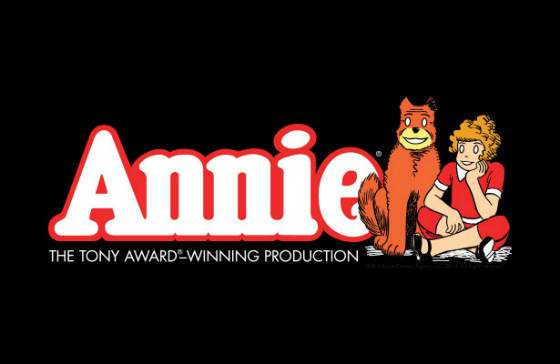 |
This past weekend, I went to see a live, touring production of Annie for the first time since I was a very young child. It probably goes without saying that this was not my idea, though it may require uttering that I had myself a fine time. And that wasn’t just because all the cocktails were doubles, and the concession stand, thinking that anything colored red could be considered Annie-themed, had liquid nitrogen on hand to make a sub-zero raspberry sorbet from what looked like a witch’s cauldron. Nor was it just because my wife was taking me out and paying for everything.
No – the truth is Annie is a good show, and has endured for many years because of it. It is also a show based on a comic strip that launched in 1924, making its central character, Little Orphan Annie, a longer-running media franchise character than Superman, Batman, or anyone from Marvel.
It occurs to me that we could learn some lessons from that fact…
1. Female Comic-Based Characters Do Sell.
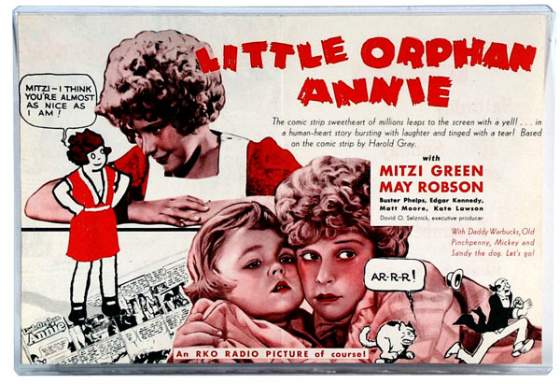 |
| via Scoop.DiamondGalleries.com |
Who’s the primary audience for Annie? It damn sure isn’t the teenage boys who think they’re hardcore for watching Game of Thrones. Based on my non-scientific observations, it isn’t really boys at all. It’s young kids, parents, and grandparents, and the kids skew female. Are you shocked? How can it be that this property still makes money if it isn’t aimed at boys?
Could it be that you not only don’t have to market primarily to boys, but you can in fact ignore them in the marketing completely if you get everyone else? Especially if – and this is important – they’re not specifically excluded? You know what I mean: Annie doesn’t need pink posters, rainbows and dolls with combable hair that might scream “boys not allowed.” The plush toys of Annie and her dog that were for sale can appeal to any kid that still has a teddy bear, male or female.
The Hunger Games is the only thing close to a superhero franchise out there that seems to have learned this lesson, and has been amply rewarded for it: it targets girls, but the black outfits, and a non-cutesy plot that has action sequences and makes sense isn’t going to turn away too many guys. Yes, there are Hunger Games Barbies, but there are NECA figures too. Why couldn’t you do a Black Widow or Wonder Woman movie the same way?
2. A Little Political Correctness Can Go a Long Way.
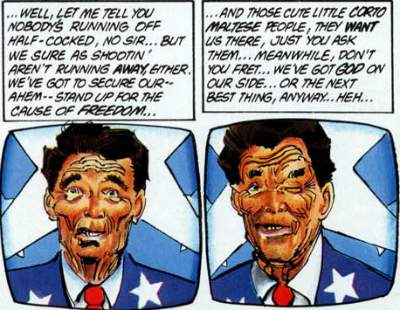 |
| via Comicvine |
I can feel your outrage bubbling up now, Mister Anti-SJW guy. So please bear in mind I’m not necessarily advocating this point from an artistic perspective, but from a place of non-exclusion.
And I’m not even talking about the race-flipping in the recent movie version, which, as changes go, pales in comparison to the ideological changes from the comic-strip source material. To wit: one of the key plot points in Annie, the musical, is that billionaire Oliver Warbucks is on such good speaking terms with liberal Democrat president Franklin Delano Roosevelt that he can just call him up on the phone, and show up to cabinet meetings with an orphan girl in tow. Annie inspires FDR to come up with the New Deal, and FDR in turn helps bust the frauds pretending to be her parents, so that she can be adopted by Warbucks.
In the actual Little Orphan Annie comic strip, ultra-conservative author Harold Gray hated the New Deal so much that he actually killed off the Warbucks character because he couldn’t bear to have him live in a world of welfare. Then, after FDR died, he brought Warbucks back.
The closest to this in a modern comic-book movie would be if, in the Dark Knight Returns-inspired Batman v Superman: Dawn of Justice, Zack Snyder turned the moronic, foolish President Reagan of Frank Miller’s comics into a good, smart man who befriends Batman and saves his life. And while I pretty much guarantee that won’t happen, I would bet even more money that Snyder will not include a comic-faithful stupid Reagan (or Bush), either. More likely, if the film even goes near that direction, it will do something like what Annie did – let Warbucks be a fully developed Republican character, and FDR a fully developed Democrat character, both of whom make jokes about the other party but remain likeable. The Avengers plays with this notion every time they have Steve Rogers debate Tony Stark – and that’s why those are some of the best moments in that movie, and its sequel.
Alienating half the audience is bad for business. Letting good characters on both sides speak is great for it. Annie may be untrue to the comics politically, but is a lot more successful because of it.
3. If the Story Is Good, Faithfulness to Source Doesn’t Matter.
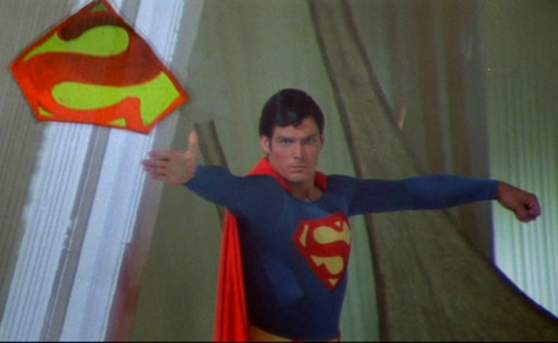 |
How many of you love the Richard Donner Superman movie starring Christopher Reeve? Now, how many of you are aware just how much it and its sequel deviate from the source material?
Does it matter? Kevin Spacey was more faithful to the comic-book Lex Luthor than Gene Hackman, but nobody I know says they like Superman Returns better. Did you enjoy Jack Nicholson’s Joker? Heath Ledger’s? Cesar Romero’s? You know that they all deviate quite a bit from canon, right?
Annie eliminates the major antagonist of the story – Mrs. Warbucks, who is ditched in favor of a doting secretary, and creates a new one in orphanage owner Miss Hannigan, who is based on a similar-but-different character named Miss Asthma in the comics. As we mentioned before, it also changes the politics of the thing quite dramatically – where Harold Gray often blamed the poor for not working hard enough, the musical features homeless people singing about the ordinary lives they used to have, and blaming Herbert Hoover for their being on the street.
Why is this not more bothersome? Here is why…
4. A Good Adaptation, However Faithful, Will Draw New Fans to the Source Material.
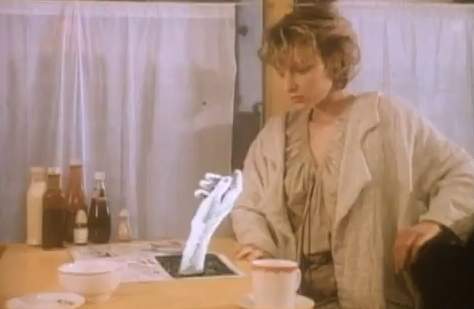 |
In the lobby, several tablets were set up to display original Little Orphan Annie strips. Predictably, most of the ones I saw were quite overtly preachy about the need to support the military – admittedly not a hugely controversial statement in today’s United States, but a solid sign that nobody was trying to hide what the source was.
I would guarantee more people have heard of Annie, the musical, than Little Orphan Annie, the strip, and posit that the former has in fact kept the latter alive in the popular consciousness. Similarly, it was the Christopher Reeve iteration of Superman that got me into comics in the first place. And if Josh Trank’s Fantastic 4 movie, for example, turns out to be a good story on its own terms, regardless of how faithful to comics it is or isn’t, we can all at least be glad that more kids will seek out the old Fantastic Four comics and enjoy them as we did.
5. Sentimentality Must Be Earned.
Even if you know nothing else about Annie, I’ll wager that you’re familiar with “Tomorrow,” its catchy, sappy earworm of a signature tune. And if that’s all you know, I wouldn’t blame you for wanting to stab yourself in the eardrums rather than attend a performance. Here’s the thing, though: context matters.
By the time Annie sings “Tomorrow,” we’ve already grown to know her as a spunky optimist who has taken the incredibly ballsy step of running away from her orphanage out onto the cold streets of New York City in winter. Her unflappable optimism is tested as she finds a stray dog that appears to be on its last legs, and in an attempt to bolster both their spirits and keep her new pet alive, she sings her song to try to help them both to hold out for one more day. Now that you know that, does the song still seem as stupidly optimistic as you may have thought before?
How does that equate to superhero movies? It’s what filmmakers keep getting wrong about the Hulk. In the first two Hulk movies, and even on the old TV show, Hulk/Banner is a tragic figure from moment one. Eric Bana’s Banner had daddy issues long before he ever became mean and green, and Edward Norton never seemed happy with the lot he inherited. This isn’t a knock on either actor – the role was written that way, by people who apparently forgot that Hulk comics were fun when we were kids. We don’t automatically feel sad for a guy whom we’ve never known in happy times.
Mark Ruffalo’s Banner, however, had some happy moments. Funny moments. Jokes. So when he loses control in the second movie, it’s a genuine bummer because we’ve been given the time to know and like the guy first. Unfortunately, Age of Ultron then missteps by going back to the maudlin well with him – I’m convinced there’d be less arguments about the feminism of Black Widow if Banner were still the likable, funny stud from the previous movie that most any straight woman would be into, rather than an emotional wreck who happens to be the most convenient love interest this time.
6. How About Some Good Theme Music?
This is John Williams’ Superman theme:
This is Danny Elfman’s Batman theme:
This is a song from Annie that isn’t “Tomorrow,” that you also know quite well:
Where are the iconic hero themes today? Literally the only one I can hum from memory is the Avengers theme. Nu-Trek comes close. Hunger Games has that four-note Mockingjay call, as well as the Jennifer Lawrence “Hanging Tree” number that stayed in my head for days. Aside from Iron Man‘s inevitable use of “Iron Man,” where are my iconic tunes? Shouldn’t Thor have something suitably Wagnerian, or Spider-Man get something better than “does whatever a spider can”?
7. If a Story Makes People Feel Good, They Can Forgive a Lot.
Annie has all sorts of story issues, notably the fact that almost every major obstacle to her progress is the result of magic coincidence that happens offstage. Oh, a billionaire wants to adopt an orphan for two weeks, for no reason? Sure. He totally develops paternal feelings for her between scenes? Why the heck not. Those bad guys we just saw prepping their evil plan have already been caught in a lie by the FBI the next time they show up? Daddy Warbucks miraculously searched all of New York and found the one stray dog Annie had been attached to earlier? Hey, like Billy Zane says in Demon Knight, if it makes you feel good, do it.
Want modern examples? Think of any recent movie you like, then type its title into YouTube’s search engine along with the words “everything wrong with” or “honest trailers.” You will soon learn that there are many reasons people think you’re an idiot for liking it, and if your character is strong, you’ll stand up for your point of view anyway.
Spider-Man‘s webshooters, be they organic wrist-spray or brilliantly unprecedented invention make no sense. But they’re cool. Mad Max: Fury Road is not a realistic depiction of the aftermath of nuclear war, but who gives a shit? It’s only once you lose us with the story that we fans start to nitpick, and I think too many movie studios forget that.
8. Daddy Warbucks Really Is a Timeless Character.
Raised in Hell’s Kitchen with a rough upbringing, this bald, fat, yet athletic and agile tycoon amassed a fortune, often by hurting other people but ultimately becoming the big man in town, running factories and using his influence to make things happen that directly benefit him and his fiefdom. But all he wants is somebody who’ll love him unconditionally.
Something tells me a character like that could work today.
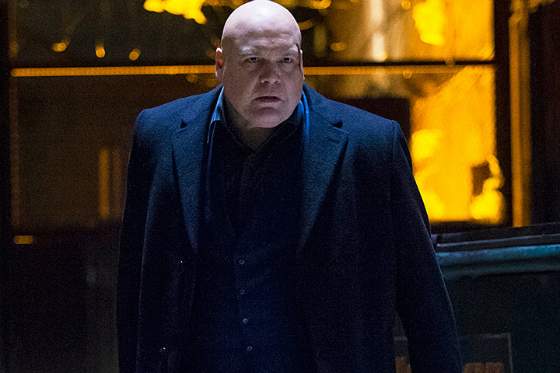 |
And in an unrelated note, I’d like to take the time to give a tip of the hat to David Letterman, whose final show aired last night. Without him, snarky, self-deprecating sites that run Top Ten lists daily would not be doing what we do. He was a pioneer who brought a wonderfully flawed picture of his own humanity to what was previously an overly formal game, and even though I wasn’t watching him as much as I once did, his absence will be felt.
#ThanksDave
